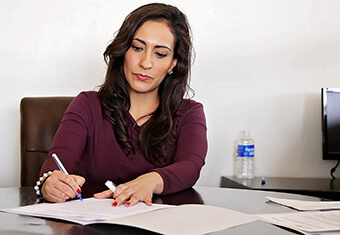Recent years have seen many people’s finances suffering as a result of the COVID-19 pandemic. However, some wealthy people have seen their wealth increase over this time. This has resulted in calls for the wealthy to pay more taxes, including from some wealthy people themselves. An example is the group, Patriotic Millionaires, who wrote an open letter to governments in January 2022, to say they were not being forced to pay their fair share towards the global recovery.
But is it already possible to pay more tax than you owe if you wish to do so? The answer is yes, there are two simple ways in which this can be done.
Voluntary payments/donations to the government
You can give a donation to the government via the form of a direct bank transfer. To do this the potential donor should write to Her Majesty’s Treasury (HMT) at accountsreceivable@hmtreasury.gov.uk specifying that they wish to make a donation towards public expenditure and lay out the value of the donation and the planned date of the donation (which must be seven calendar days in advance).
The donor must also confirm that the money is theirs to give and is not derived from crime, money laundering or other illegal activity; additionally the donor must acknowledge they cannot request a refund of the donation once it has been made. HMT will then provide details of the bank account and reference to be used for the donation. HMT also does advise that the gift cannot be ring-fenced for a specific purpose or assigned to a specific area of public spending.
Donations can also be given specifically to reduce the national debt. To do this all the donor needs to do is download, complete and submit a form to the United Kingdom Debt Management Office (DMO). More information on donating to the government is here.
Voluntarily overpaying via self-assessment tax return
Another simple method is through voluntarily overpaying during the filing of a self-assessment tax return where there are options to amend how much one pays. If HMRC deems that you have overpaid you can ask that they do not send you a refund. More information on how to voluntarily pay more self-assement tax is available here.
Pay more tax, or give to charity?
Despite these easy ways to pay more to the government, according to the UK Debt Management Office only GBP565,349 was received in donations in 2021, which was up from GBP48,957 in 2020. In contrast, the Charities Aid Foundation (CAF) recorded that GBP11.3 billion was donated to charity in 2020[1]. The CAF figures show that the number of people giving to charity has dropped but that those who are giving are donating more money and gifts.
If you are in a position to contribute money, you have a few options: you can pay more tax or support the causes that matter most to you and monitor the impact of your donation.
For more advice on how to pay more tax or on effective philanthropic giving speak to a qualified advisor: https://advisingfamilies.org/uk/find-a-tep/
 UK
UK  Canada
Canada















